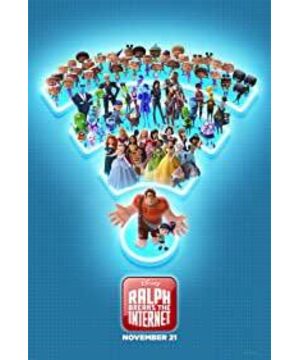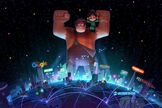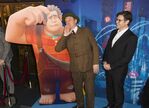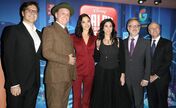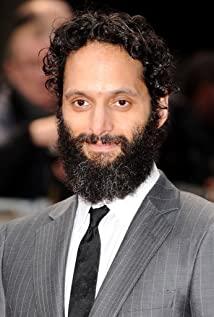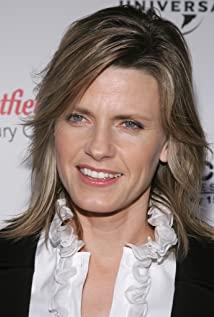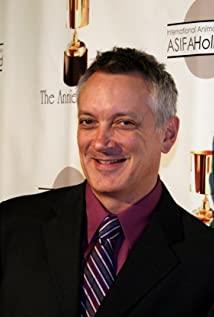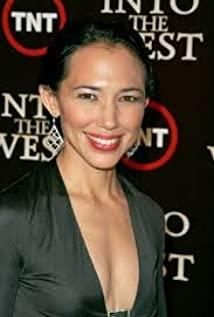In recent years, more and more film companies have chosen to use women as protagonists or important roles in their films, and as the most politically correct studio in Hollywood's "Big Five", Disney Pictures is naturally standing in this feminist movement. the forefront.
In terms of live-action movies, the restarted Star Wars series set the protagonist of the story as the female image Rey, and its other gold-absorbing IP Marvel also put the Black Widow single movie on the agenda. In terms of Disney's old line of animation, this change is more comprehensive. "Finding Nemo 2", "Cars 3" and "The Incredibles 2" successively changed the gender of the protagonist from male to female.
Some people think that this is a victory for the disadvantaged in society, and it is a sign that human society is moving towards a more equal society; some people think that this is just a hypocritical act of the white left elite, and Hollywood is in the background of the drying up of innovation in the film industry. A botched attempt. But for now, the change has been commercially successful. The films just mentioned have not only achieved box office success worldwide, but also achieved phenomenal box office results in North America. The audience once again used movie tickets to prove that at least a considerable number of groups hold a positive attitude towards this value.
Interestingly, while the global box office is booming, these films have all suffered box office waterloo in China. Of course, we can explain this phenomenon with cultural differences, the lack of popularity of IP itself in China, and the quality of the script is not as good as the previous work. But with so many similar cases, we have to admit that this attempt by Hollywood is not welcomed or even recognized by mainstream Chinese movie audiences.
In the recently released "Wreck-It Ralph 2", Disney once again shifted the focus of the story from the male character Ralph to the female character Vanellope. Although the film's domestic box office performance was dismal, the film's reputation has also declined compared to the first step. But in terms of feminist expression, Wreck-It Ralph 2 is undoubtedly the best and gentlest attempt Disney has ever made.
First of all, this series itself is very suitable for the conversion of the protagonist, because in essence, the first film in the series is a dual-protagonist setting. The two characters, Ralph and Vanellope, are complementary, and the story would be overshadowed by anyone missing from the story. Therefore, there is a big difference between the "replacement" of the protagonist in "Destruction King" and the act of forcing a supporting role into the protagonist in "Finding Nemo 2".
In the first installment, the main character Ralph's character motivation (not wanting to be the villain anymore, wanting to be liked by others) is spontaneous. The advanced part of the script is that the self-realization of the protagonist is achieved by helping another character (Venelope). However, not all motivations have to be spontaneous and can also be imparted by others or changes in circumstances. In the second part, although the focus of the story is on Vanellope, her change also directly provides Ralph with a reasonable character appeal - saving the friendship between the two. Many people feel that Ralph's role in this film is weakened and the character lacks growth. Yes, if you compare the beginning and the end, Ralph is still repeating his life in the game every day, and it seems that the characters have not grown. But the growth of characters does not have to be limited to self-awareness. Ralph's growth is actually learning to respect the choice of his friends, even if the choice is to leave you.
Therefore, the same gender replacement, "Invincible Destruction King 2" is not far-fetched and blunt. On the contrary, it would be a bit far-fetched to criticize the script of the film on this point.
Another highlight in the movie is the villain setting. In the first film, the film has done a layer of reversal in the villain setting. This time the story has not been reversed, and the villain is directly set to be Ralph himself. The film has a good grasp of the extent of blackening Ralph. The real villain of the movie is not Ralph, but a viral replica whose dark side of human nature is infinitely amplified by the virus.
The imitation of "World War Z" and "King Kong" in the third act is undoubtedly a major visual highlight of the film. It not only meets the audience's demand for visual effects, but also visualizes the theme of the film. Combined with the metaphors of King Kong and beauties, you can see the creator's metaphor of the struggle for gender rights on the surface of friendship. In terms of expressing gender confrontation, some films either overly blacken and degrade male characters, or bluntly add halo to female characters, highlighting the weakness and holiness of women. And by distinguishing Ralph from the viral replicator, this film makes it clear that the film is not about belittling and accusing men. Ralph is flawed, but he's not inherently a bad guy. What the film really wants to criticize is not men, but "viruses" - extreme masculinity.
In terms of female characters, although the self-deconstruction of past Disney princesses interferes with the progress of the main story line to some extent, it is undoubtedly a highlight of the film and the most obvious expression of feminism in the whole film.
Another female figure worth discussing in the film is Sister Flash, voiced by Gal Gadot. Since the release of the Wonder Woman single film, Gal Gadot has become the icon of independent women in the new era. But compared to Wonder Woman, who was suspected of objectifying women at the beginning of her birth, this time Sister Flash is more in line with her character.
Just like every little boy has a superhero in his heart, Sister Shane is such a presence to Vanellope, but Sister Shane is more down-to-earth. What she conveyed was not the grand worldview of saving mankind. She only told Winthrop one truth: pursue your dreams and be yourself.
In previous film and television works, positive role models were often held by middle-aged straight men. In this film, on the contrary, the middle-aged male Ralph is naive and naive; while Sister Shem is independent and has a personal opinion. More importantly, Sister Shem's influence on Winnelope was not based on the premise of belittling Ralph as a male image. She did not accuse Winnie of Ralph's drag on her, nor did she try to provoke the two. relation. The role of Sister Shem tells us that women (or any disadvantaged group) trying to achieve liberation by confronting men (any external resistance) is putting the cart before the horse. What is powerful is not confrontation at all, it is self-realization.
You may feel that the whole article is an over-interpretation of a children's animation. It is true that the tens of thousands of little girls in front of the screen are unaware of the feminist issues implicit in the film, but if they use Sister Shem as a role model and understand the meaning of dreams and self-fulfillment, they are already unconscious. "Comprehend" the true meaning of "feminism". I also believe that growing up with these values, they are destined to become independent women.
View more about Ralph Breaks the Internet reviews


